Frankenstein and Satori, November 6 and 8, 2007
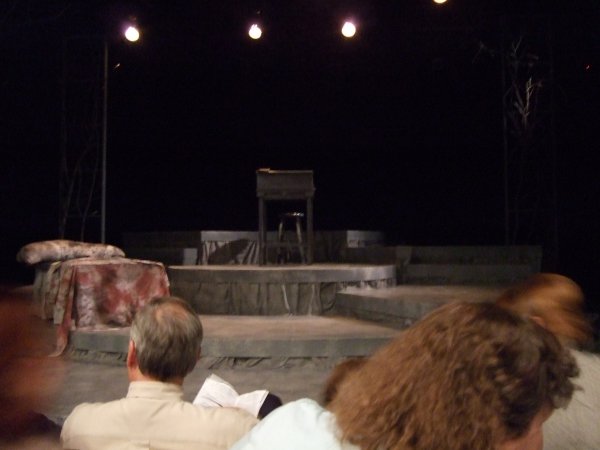
Stage for Frankenstein at the Shakespeare Company Nov. 6.
Giles Davis portrayed six characters and put on a great show.
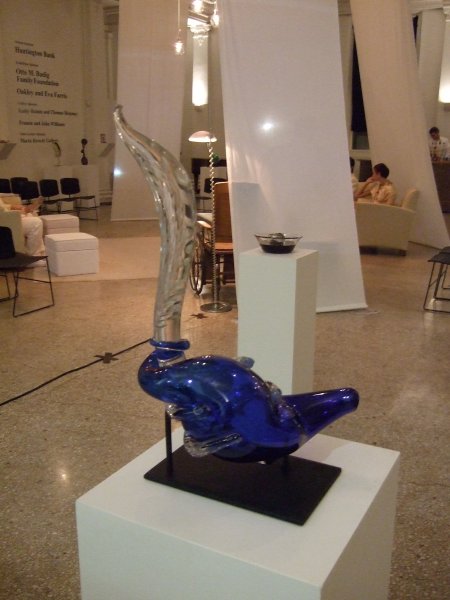
Glassware in a gallery at the Carnegie with Satori Group, Nov. 8, for
Investigating the Murder in El Salvador. (see the notes below)
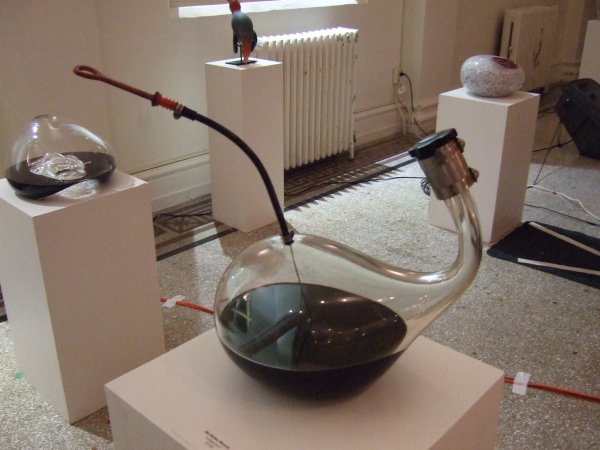
The setting was almost etherial.
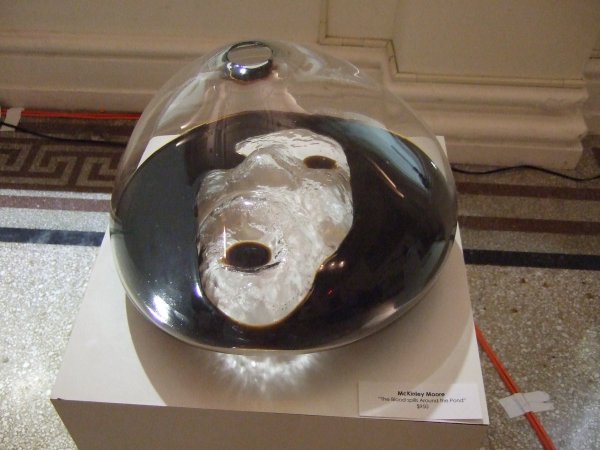
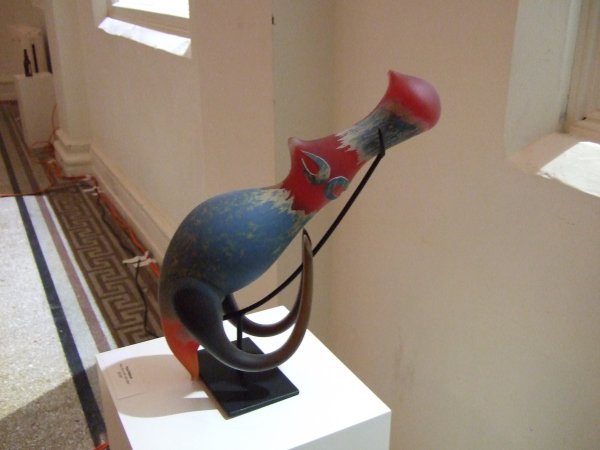
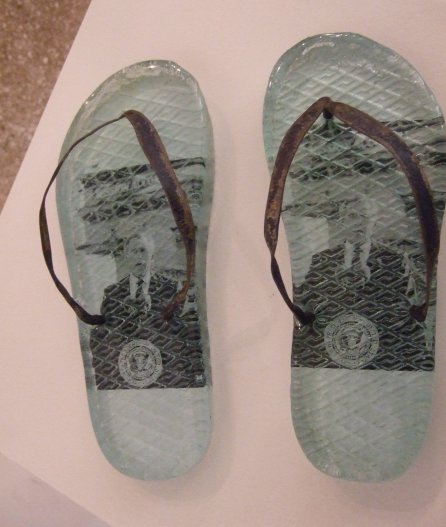
These are g.w. bush glass flip flops.
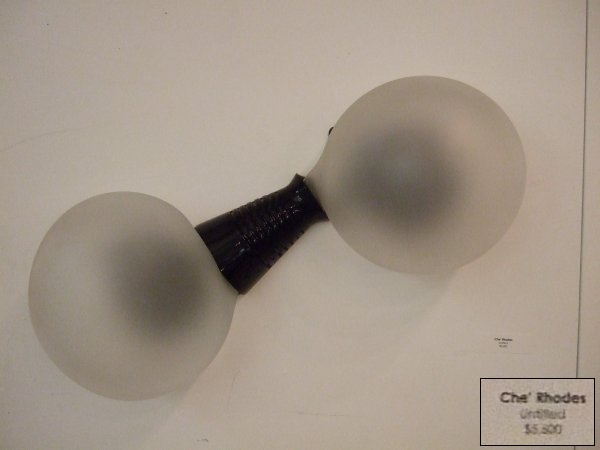
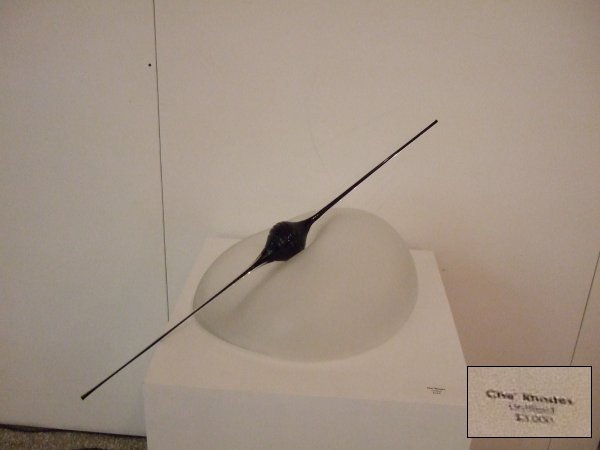
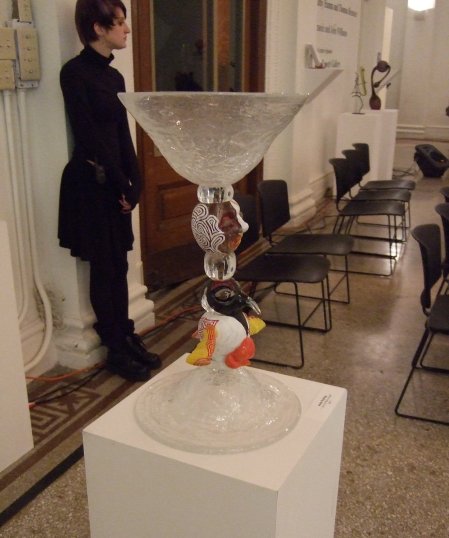
The person behind the glass piece is one of troupe.
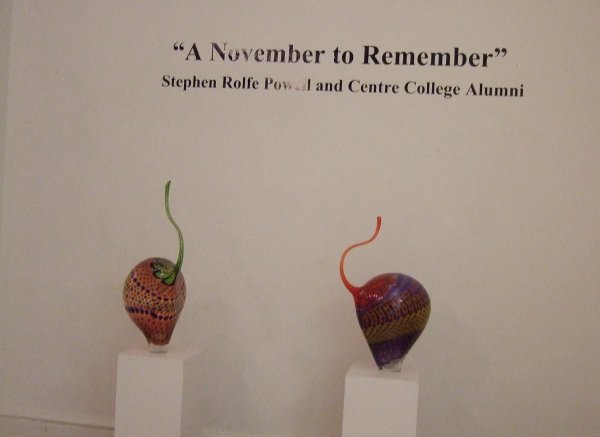
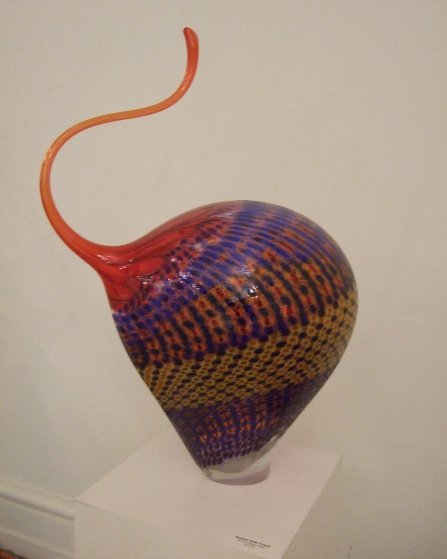
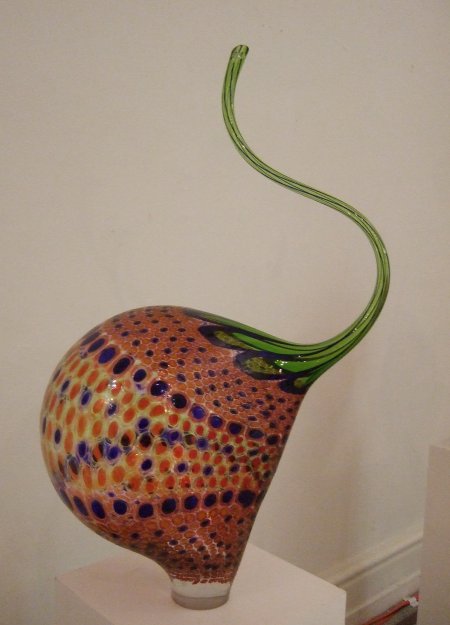
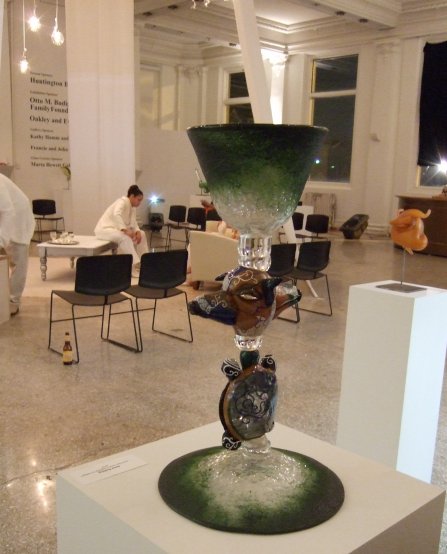
The person in white is one of the six actors who created a tableau while
the audience arrived and milled about getting drinks and looked at glass.
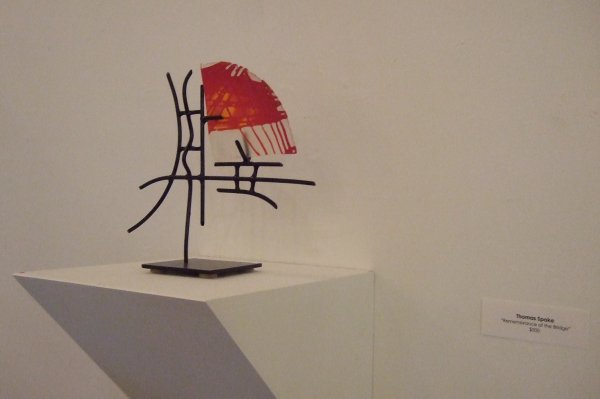
This was one of my favorite pieces.
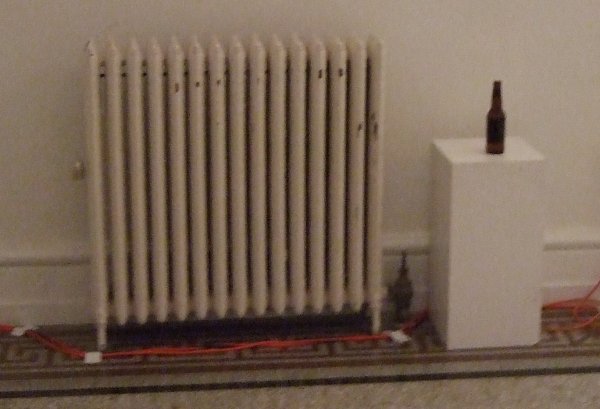
This is my beer bottle, which I donated briefly to the show.
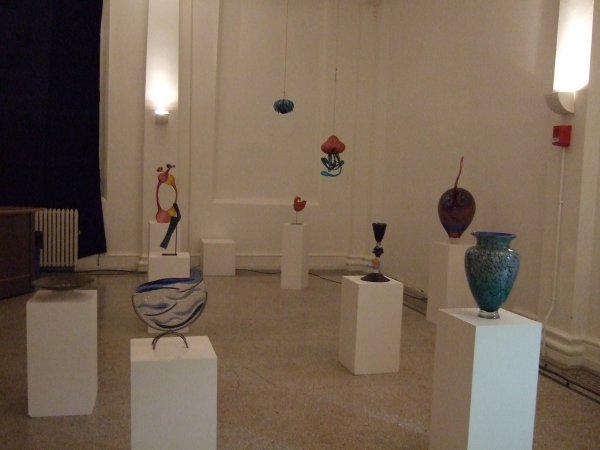
A corner of the room.
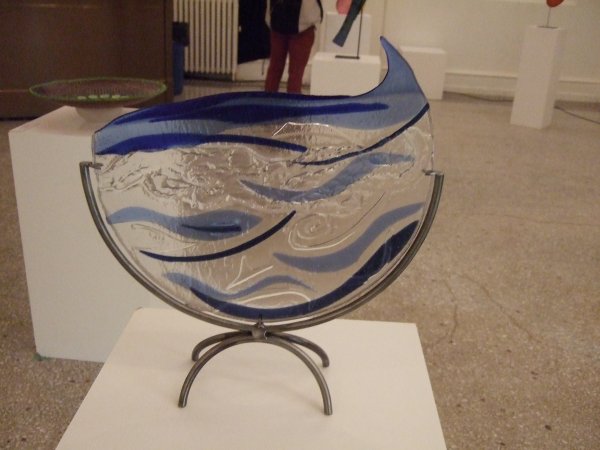
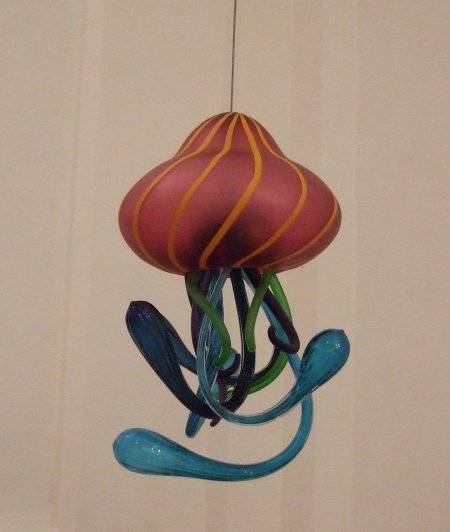
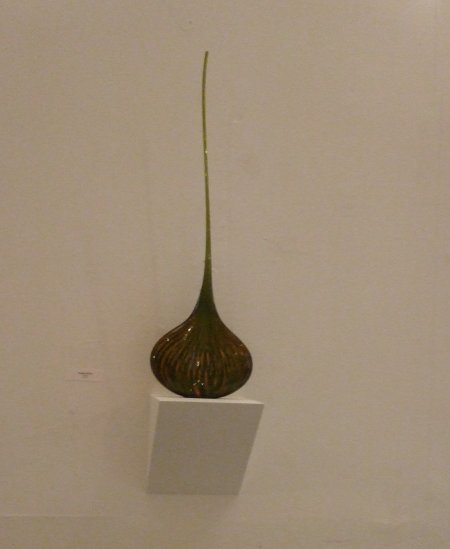
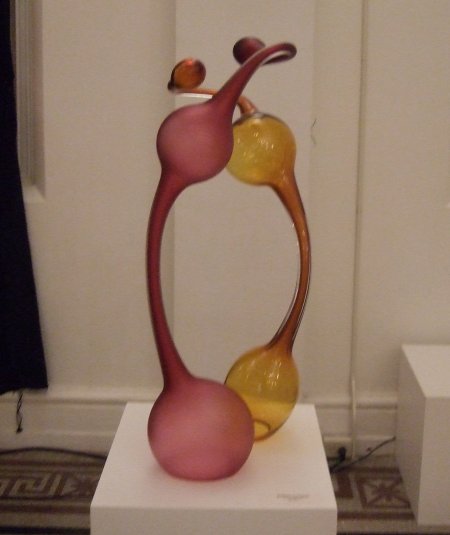
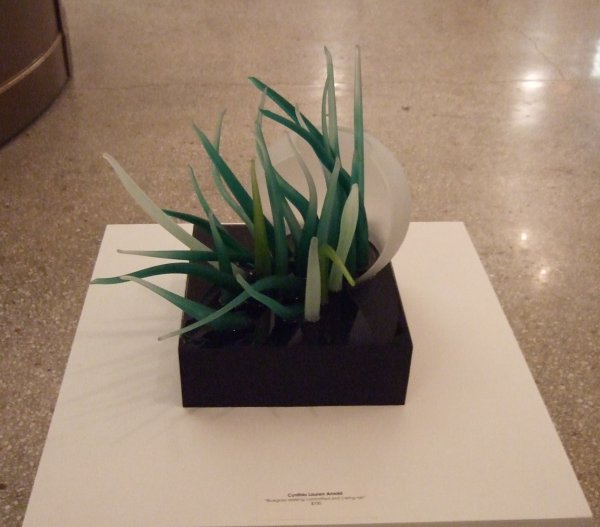
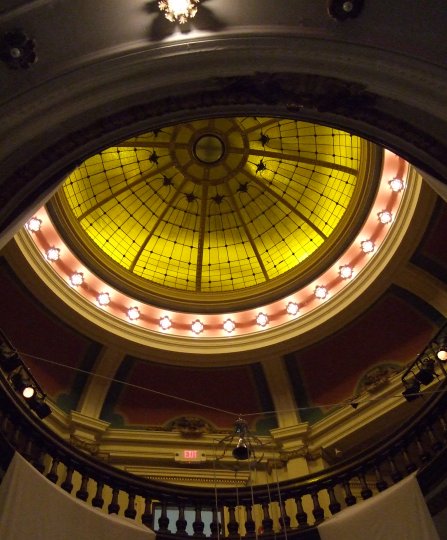
The gallery ceiling.
|
I
joined the small-but-appreciative audience at the Carnegie Center in
Covington to see The Investigation of the Murder in El Salvador.
The
setting was startling and unusual, to say the least, with the
“stage-area” set up on the floor in a large gallery amidst some of
the best art-glass I’ve seen. As the audience entered, about 15 or
20 minutes before the show, the actors were arranged in tableau,
mostly seated, in an elegantly appointed salon set up in the middle
of the room. The audience was able to purchase drinks at a cash bar
and mill about looking at the artwork and stealing glances at the
actors (it felt odd to stare). Chairs for the audience were arranged
on all four sides of the “stage,” and we had true
theater-in-the-round (well, square really). There's more to give
away than that, but I won't.
The
performance was no less startling that the setting. The actors,
despite three of the eight coming freshly off the stage of the
recent run of Never Swim Alone, were captivating and utterly
convincing as they inhabited their roles as men and women of the
landed class and tourist class, and servant class. The play itself
is well-suited to the room and well synchronized with our milieu. At
once reflective and immediate, the plot draws on our general, albeit
vague, familiarity with the tragedies and abuses of recent history
in Central America as it leads us to explore the thoughts, emotions,
and inspirations of people in a world where some enjoy affluence
while many do not. The action moves from tableau to soliloquy to
conversation to frenzied action in sometimes hysterical cycles of
revelation and slippery rationalization.
Though barely an hour long, it is a feast for the mind and
sensibilities.
After
the show the actors returned for a chat with the audience. The
actors were deeply interested in our experience of the show, and
generous with their insights regarding the more obscure or ambiguous
moments. Before I left I also learned this play may be the last
we’ll see of Satori group here in Cincinnati. They are moving en
masse to Seattle in January. They hope to be able to return from
time to time, but can make no guarantees.
p.s. The theater
is on Scott Street in Covington, just a few minutes from downtown
Cincinnati.
p.p.s. More about
the play:
The Investigation of the Murder in El Salvador
is an early work by Charles Mee, one of America's most exciting
contemporary playwrights.
Ironically, no genuine investigation into the murder occurs.
Instead the play offers a wry and biting attack on the ruling
class. "If property is theft," the play suggests, "then capitalism
is murder."
Performances will occur in the Carnegie's main gallery space, which will also hold a glass group exhibition including works by world-renowned artist, Stephen Powell. El Salvador draws dynamically from contemporary art, music, video, pop culture and foreign policy. Making the Carnegie's beautiful yet fragile glass exhibition the perfect backdrop. Anthony Darnell (CEA Nom., Acclaim Award) and Caitlin Sullivan co-direct The Investigation of the Murder in El Salvador. |